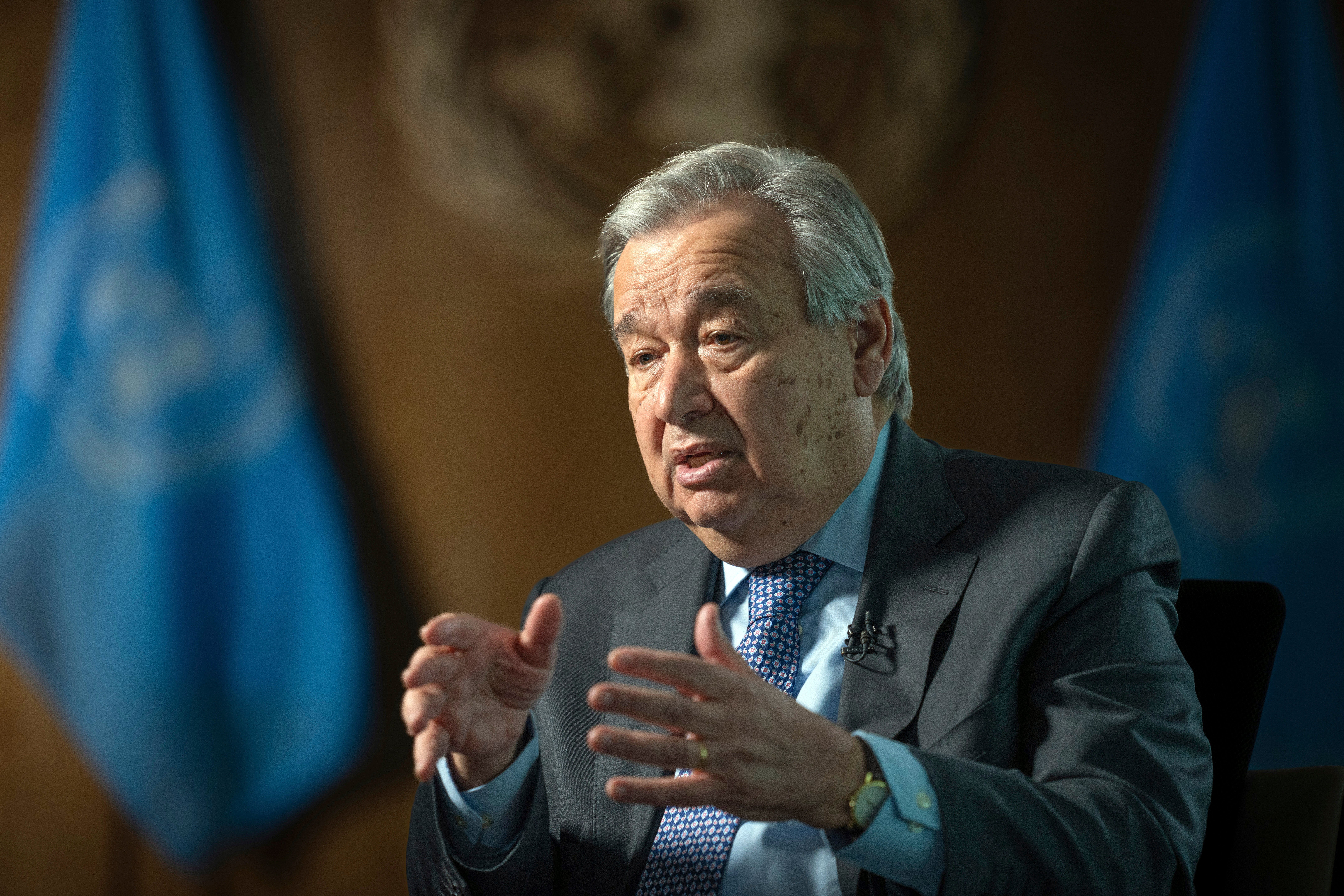‘They are lying’: UN chief delivers damning verdict on IPCC report warning of ‘cities under water’
“We are on a fast track to climate disaster,” he said

A litany of broken climate promises. A file of shame cataloguing empty pledges.
This was how Secretary-General of the United Nations, Antonio Guterres, described the latest chapter of the UN’s Intergovernmental Panel on Climate Change report published Monday.
Mr Guterres did not mince his words as he addressed the virtual news conference to unveil the landmark report’s third chapter, which focuses on how the world can limit global heating to under 1.5C as outlined in the Paris Agreement.
In a speech, the UN chief accused some governments and businesses of “lying” and said it was the countries that are increasing production of fossil fuels, not climate activists, that are “truly dangerous radicals.”
“We are on a fast track to climate disaster; major cities under water, unprecedented heat waves, terrifying storms, widespread water shortages, the extinction of a million species of plants and animals,” he said Monday. “This is not fiction or exaggeration, it is what science tells us will result from our current energy policies.”
Mr Guterres accused high emitting governments and corporations of not just turning a blind eye, but of adding fuel to the flames when cheaper renewable solutions provide green jobs, energy security, and greater price stability.
His remarks and the publication of the UN’s assessment as to how the world can reduce the rate of climate change, come at a politically sensitive moment as governments around the world assess their energy policies following Russia’s invasion of Ukraine.
The UK government is expected to publish its own energy security strategy in coming days, which will seek to shift away from Russian fossil fuels and to ease the squeeze on British household budgets. Boris Johnson has indicated that his plan will include an expansion of renewable and nuclear power, but will also include energy from UK fossil fuels.
Last week, he told a parliamentary committee that the ambition to keep the UK on the path to net zero has “not been adulterated or lost at all” but that it would be “very useful” for there to be an investigation into the potential for oil and gas exploration at the same time.
Any further reliance on fossil fuels will dismay green groups and climate campaigners who have called for the government to accelerate its transition to renewables and better insulate British buildings, as a way of combating the climate crisis and the cost of living at the same time.
A spokesperson for the government said the UK had already increased its renewable energy capacity by five times since 2010, helping Britain to reduce dependence on expensive fossil fuels and to bring down costs with solar and wind.
“But we cannot and should not just turn off the North Sea oil and gas industry overnight as doing so would put energy security, British jobs and industries at risk, and we would be even more dependent on foreign imports,” the spokesperson said.
“We remain committed to further expanding our homegrown renewables sector and have launched the biggest ever renewable energy auction to accelerate deployment.”
Mr Guterres says the world needs to “triple the speed” of the shift to renewable energy, moving investments and subsidies from fossil fuels to renewables now, adding that in most cases renewables are already far cheaper.
“Investing in new fossil fuel infrastructure is moral and economic madness,” he said.
He also said citizens around the world could do their part by building a grassroots movement that cannot be ignored.
“I’m appealing directly to you,” he said. “Demand that renewable energy is introduced now at speed and at scale, demand an end to coal fired power, demand an end to all fossil fuel subsidies.”
Choices made by countries now will “make or break” the commitment to 1.5C, he added.
“It’s time to stop burning our planet, and start investing in the abundant renewable energy all around us.”
Join our commenting forum
Join thought-provoking conversations, follow other Independent readers and see their replies
Comments
Bookmark popover
Removed from bookmarks